Reflections on the International Conference on Poverty and Sustainable Development 2019- Colombo, Sri Lanka
Related Content

VID 20191206 142844
In December 2019, I attended the International Conference on Poverty and Sustainable Development in Colombo, Sri Lanka. I was able to present my Laidlaw Scholarship research into poverty discourse in the UK and my podcast featuring underrepresented voices in the presence of activists, practitioners and esteemed researchers in international poverty. The conference included researchers and activists from around the globe who all came with presentations and opinions on how they understand and have attempted to aid poverty in their nation.
In 2018, I completed a cyber-ethnography using the social network platform Mumsnet.com to investigate how mums discuss poverty topics and the discourse that emerges. I used this data to exemplify how this discourse is important in social institutions (such as schools) and wider society. In devising the research project, I knew it would be incomplete without the voices of young people and marginalised communities. With this in mind, I created a podcast which practically showed the importance this discourse has to researchers, food banks, police, practitioners and young people. Ultimately, my research presentation endured for 20 minutes, with tech issues, a thought provoking Q&A and a very dry mouth. My presentation was a strike between what I knew could be understood and what I felt was important to share.
In the conference, I was 1 of 3 participants who came from Europe. The rest of the participants were from South-East Asia, East Asia and Southern Africa. As a poverty campaigner in the UK, extreme poverty in low and middle income countries is something that is often used to discredit the existence of poverty in the UK. My time as a campaigner in environments such as parliament has taught me that a valid excuse for doing nothing about poverty is that it will always be worse elsewhere, ignoring the irony that it was the Empire and colonisation that caused economic uncertainty and lack of resources in countries like Sri Lanka. When I was at the conference, one entrepreneur described the difficulties of actioning a bus route for rural impoverished people because of elephant stampedes, which is obviously not an issue we face in the UK. Through listening to the research, I understood that just because we don’t have these issues linked to overwhelming extreme poverty in the UK (although it does still exist along with relative poverty), it does not make our experiences of overused food banks, a dehumanising welfare system and negative poverty discourse any less important. If anything, it was important to hear how we all struggle with our versions of poverty, depending on the social environment, geographical context and political history of our countries. This is not a piece about the importance of *low and middle income countries listening to what high-income countries did right but in fact the opposite; that regardless of the economic position of a country, poverty still exists. Instead, we must take the research creativeness of low and middle income countries and apply them to the UK context to solve poverty symptoms.
The most important lesson I learned at the ICPSD is that conferences are not a soap box to talk on about your own perceptions or experiences. Instead, they are a place to have your outlook, rooted in research and have feedback from seasoned researchers and activists about how strong your research is. Bottom line, don not go to conferences thinking you have all the answers, go thinking you would like to figure out the answer together.
Although I took so much from this conference and my experiences in Sri Lanka, I hope my presentation can inspire seasoned researchers to involve young people in their research as stakeholders in an empowering way. I know that the conference has inspired me to continue developing my research into poverty in the future, using different methods to root my research in theory. It also allowed me to understand that we are all working on the same goal, trying in many ways to solve different outcomes of the same problem. Instead of working independently, we can work together to better understand the importance of each other's attempts at solving poverty locally, nationally and internationally.
*In this article I have used the term "low and middle income countries" to describe regions and countries that were discussed in relation to poverty at the International Conference on Poverty and Sustainable Development. "Low and middle income countries" was the best category to discuss economic development as used by The World Bank. I understand not all represented countries at the conference or regions mentioned in this article are "low and middle income countries". Please refer to https://www.worldbank.org/ for a list and definition.
If you're interested in the research I conducted and the podcast I created, check it out at www.deprivationdiscourse.com.
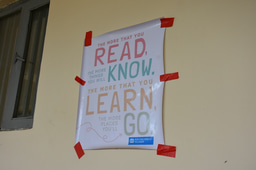
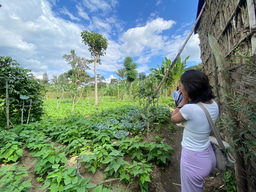
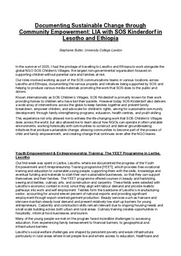
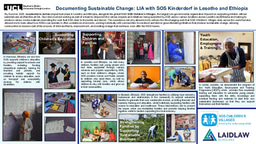
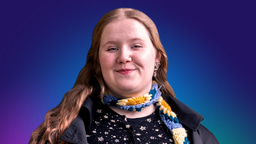
Please sign in
If you are a registered user on Laidlaw Scholars Network, please sign in
Great reflections Elif on what sounds like a brilliant experience - and really useful tips on conference presenting.
Totally obsessed with you, Elif! Super inspiring to hear what you are achieving with your research and how you are using your voice to tackle important issues.